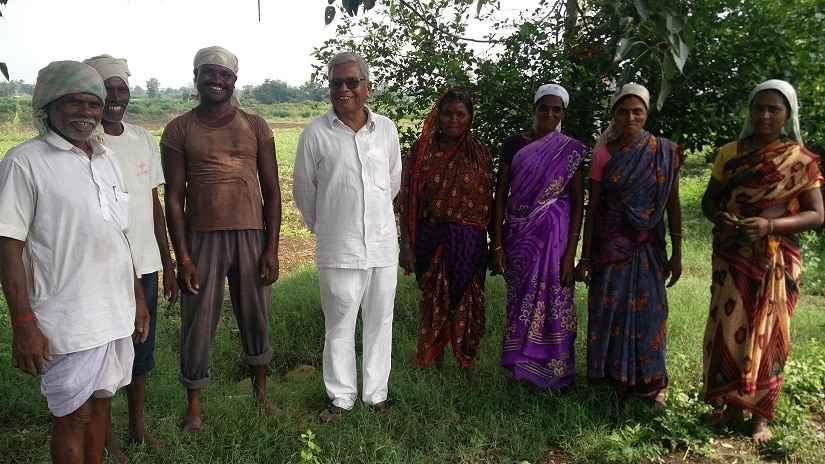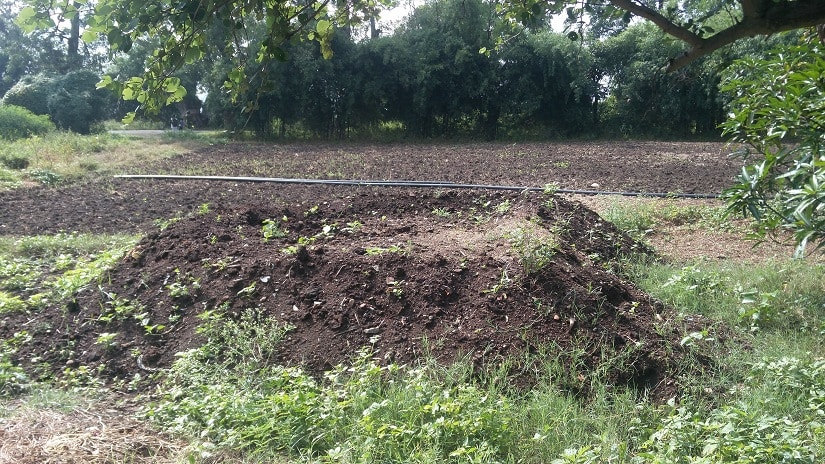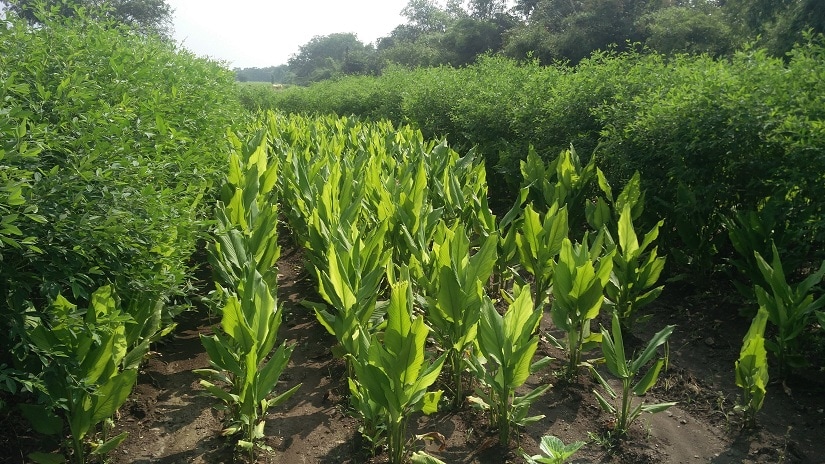Subhash Sharma, an organic farmer from the Tiwasa village in Yavatmal district, pays his male labourers Rs 200 a day. Women get between Rs 250-300, depending on the amount of work they have for the day. “The more they work, the more they are paid,” says Sharma, explaining the slightly higher wages for women: “Women wake up at 4 am, do all kinds of other work before they begin their farm work. Men are not like that." Sharma’s farm is an oasis in an otherwise grim Yavatmal, where farmer suicides are common and deaths caused by accidental inhalation of pesticides are an increasing trend. Late last year, some 50 farmers died in Vidharbha when they accidentally inhaled pesticides they were spraying on cotton plants. A majority — some 21 of these deaths — were from Yavatmal district. While some say that this was because the crops had grown too tall and the victims were spraying upwards, causing the pesticide to come too close to their bodies, others blame the farmers for not wearing protective gear. However, activists blame the government for not regulating some of the most toxic pesticides in the world — most of which have been banned in other countries. [caption id=“attachment_4362713” align=“alignnone” width=“825”]  Subhash Sharma with workers on his field. All images by the author[/caption] With 17 acres of land and 13 workers, Sharma ensures that there are crops to be grown all year round. Unlike cotton farmers who are employed only a few months a year, Sharma grows several vegetables, pulses, and trees to ensure there is always work to do. Some farm labourers involved in spraying pesticides are desperate for work, and end up working for more than eight hours to ensure they make the most of the spraying season. “Workers in my farm do not worry about finding a job or inhaling poisonous pesticides. They also don’t have to worry about finding jobs, as there is always work here,” said Sharma. The food he and his workers eat are from the land. For manure, there is a lined canal that flows out of the shed for cows. The urine is collected from here, along with cow dung and other biomass that is left to compost. The cow urine, dung, and jaggery are mixed with water to nourish the soil and reduce fungal growth. “Microorganisms, which are essential for soil health, continue to thrive. This cannot be possible if chemical pesticides are used,” said Sharma. [caption id=“attachment_4362711” align=“alignnone” width=“825”]  Biomass collected to be used as natural fertilisers[/caption] Taking the conversation forward, a worker on his field said: “It is about understanding what relationship these plants share with each other,” said Shravan Narayan Pardi. “For example, we grow haldi (turmeric) under the shade of toor daal. Working closely with nature, we are learning how to best grow crops,” he added. Nature is the best teacher, Sharma says. He began organic farming 1994 — well before different state governments started seeing the benefits of it. “The idea is to keep the inputs minimal and ensure the land is self-sufficient,” he said. Even in a drought-prone district, Sharma doesn’t depend on external sources for water. Throughout his field, there are contour bunds that ensure rainwater is trapped. Some plants are grown at a height where a dug-out canal flows by parallelly. This he says, ensures the rain water is locked within the farm and is absorbed into ground. “This water not only nourishes the land, but also comes back to us as groundwater,” he said. Even though they are mostly shielded by the vagaries of employment and the sting of poisonous pesticides, farm labourers working with Sharma are well aware of the reality faced by their peers outside. “There is a misconception that organic farming is expensive and will not yield good results. I try breaking this whenever I meet other farmers outside. But most of them are too deep in debt and crises to look at long-term solutions,” said another farmer labourer Umesh Ganesh Dubare. “To convince them further, I tell them that I have not been to a hospital for a long time or even bought medicines. Still, it is very difficult to move them,” he added. [caption id=“attachment_4362717” align=“alignnone” width=“825”]  Multi-cropping on Sharma’s field, where haldi is grown alongside toor daal[/caption] In January this year, a special investigation team that was formed to find the cause of pesticide deaths, concluded that the entire blame rests on farmers and farm-labourers. The state government seems to have shunned any responsibility for the death of these farmers. In an earlier interaction with _Firstpost_ , guardian minister for Yavatmal Madan Yerawa said it would not be possible to ban toxic pesticides, even other states in India like Sikkim and Kerala have done so. “Farmers are highly dependent on these pesticides. Such a step could lead to more farmer suicides. Who will be responsible for these deaths? Not only deaths but also the risk to nearly Rs 15,000 crores of farming income,” he said. Experts and scientists on the field say that not only are farmers hesitant to make the switch, but government policies for this cause, too, are not proactively implemented. “Our studies show that despite the drop in yields of non-leguminous plants like cotton in the first year of not using chemical inputs, the margin of profit increases. This is because there is no expenditure on chemical pesticides,” said Tarak Kate, a field scientist with Dharamitra, an NGO based in Vidharba working towards sustainable farming. He is also a former visiting faculty at the Stellenbosch University in South Africa. His organisation studied some 461 farmers in 15 villages, covering around 1,000 acres. “However, farmers are only fixated on yields. And they do not keep records of how much they are spending on pesticides, which makes it harder to convince them,” he added. Activists say that Sharma’s practices are the way forward for a district like Yavatmal. “For now, we are able to say confidently that there is no organic farmer that we know of, who has had to commit suicide. This is because organic farming involves lower costs of cultivation (it relies on nature’s products and processes for farming), and therefore, lesser need for the farmer to borrow. This is apart from the fact that there are additional health benefits and consequent savings on that front too. Profitability is higher, in addition to ecological benefits. This, therefore, has to be the approach out of the agrarian distress in India,” said Kavitha Kuruganti, convener of Alliance for Sustainable and Holistic Agriculture (ASHA) .
At this farm in Yavatmal, there are a variety of crops to be grown all year round, thus ensuring long-term employment for labourers | #FirstCulture
Advertisement
End of Article


)

)
)
)
)
)
)
)
)



